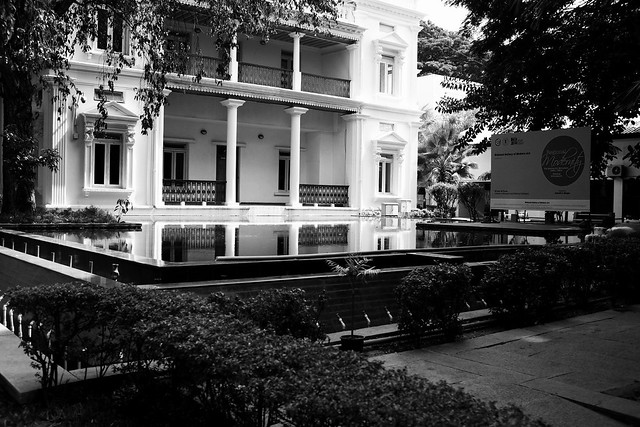
Go abroad to study, pursue an MBA at one of the Indian Institutes of Management, or find a job in a Bangalore-based IT company: In the nineties, during the college years I spent studying Computer Science, we saw our futures following one of these paths. The options are now passé; the “cool” thing nowadays is to start a company or join a startup. On this visit to Bangalore I met six people, cousins and friends, engaged with a startup. Two of those startups were financially sound; the others were passing through a rough patch, their future uncertain. But success seemed to matter less to these people than the experience, the thrill of “doing your own thing”.
The entrepreneurial fever had spread beyond business and technology. I had read about it earlier, but saw it only this visit at an evening with eight standup comedians in bFlat, a bar in Indiranagar. Set on the 2nd floor of a commercial building, the cavernous bar was crammed with sixty to eighty people, young men and women mostly in their twenties. The standup artists were also young. Their themes — race, gender, the IT worker, language and accents, porn, relationships — were unsurprising, and so was their Western influence: Russel Peters, Aziz Ansari, Chris Rock. But the jokes gathered an original quality from the setting they used — the Indian context, rich with material waiting to be picked apart. This crowd was a fairly new class, young liberal urbanites at ease in the global culture and sharing its attitudes, and they had to deal with others who had grown up at a different time with another set of values. The gap proved a good source for humour, tapped with skill by the artists.
Bangalore of the early nineties had no such place. Serious pub culture in the city began around the mid-nineties, so we missed the wave by a year or two. (I do not recall anyone from my college going to a pub; our idea of fun was dinner in a North Indian restaurant.) We were also an awkward bunch in public, showing little of the easy-going confidence one sees in urban teenagers nowadays. And we did not have the kind of money the middle-class now flaunts. A scene like the one in bFlat — with young adults displaying an easy familiarity with the opposite sex and with alcohol — would have seemed to us like fiction, or like a setting from the West.
The comedians in bFlat stayed away from politics, mostly. When one of them compared a neighbouring state leader to a baby elephant, he quickly added he could hear the sirens already — the police were on their way. Among the artists were two women. Their jokes were often self-deprecatory — touching, for instance, on her weight and figure (another baby elephant), on the way women drive cars, on how she only had to stop “shaving” for a week to grow a moustache and be seen as a man — which lent these women a soft charm lacking in the postures the men adopted.
“Other than the exchange rate, what brings you to India?”
It was a question to a foreigner in the audience, a Dutchman. When the laughter subsided, the comedian, a young man with a goatee, continued:
“So are you and your friends going Dutch today?”
Continue reading “Comedians and students” →















